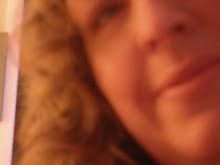I really wanted to love this book, hard. The main idea of it really tickled my fancy. Rachel Hudson dies of cystic fibrosis at 27. What she leaves behind in her will, from the very small estate she accumulated over her small collection of working years, is money transferred into instructions for her mother, Beth, and her brother, Matthew. Rachel was a spirited type, the antithesis of her anxious mum, who uses her faith to hide from life, and her disconnected brother, who hasn't found his place.
<blockquote>Despite her disease, Rachel had not resisted the travel bug; instead she had packed her illness into her luggage like a bulky and inappropriate souvenir bought too early in one's journey. Her medication and her portable vaporiser packed deep into her backpack, she had set off to Europe, Asia. The postcards that had accumulated on the fridge, Beth had, upon their arrival, placed carefully in a shoebox under her bed. Beth had wondered if this shoebox might one day be some tangible object that she might need to caress, in the absence of her wild daughter, found dead and raped in some horrendous city on the other side of the world.</blockquote)
Brian, the family's father and husband and the focus of the prologue, has disappeared years ago, the aftershocks from the Vietnam War untethering him from the ground that would have kept him in the place he wanted to be.
Each character was reasonably drawn. I got a feel for each one that they were real, whole people, except perhaps for Beth's faith, which seems to be somewhat of a caricature.
But it's the language and the grammar that broke this for me. I lose concentration when a sentence does not have an end enclosing comma separating a phrase. I lose concentration when those commas are then placed in other spots they're not meant to go. There was a repetitive use of the characters names that with a little work could have been smoothed.
Which is a shame, because this book could have been something special. I would love to have seen this book given extra airing time, laid aside for a few months until that last hard edit. There were glimpses of possibility here and there, in a turn of phrase ("She had called upon her faith to hold her. It was a rope she could latch on to. A thread. She could weave herself in to it, and settle in the twine") and a turn of plot, and in the drawings of the Pilbara, but these were overridden by clunky phrasing and a particularly implausible plot twist towards the end.
Not all novels have to be literary. (And I guess if I had to define what I read it's the stuff that verges closer to the literary than mainstream). Not everything has to be literary. But everything has to be as good as it can be.
Newer
Older
Subscribe to:
Post Comments (Atom)




No comments
Post a Comment